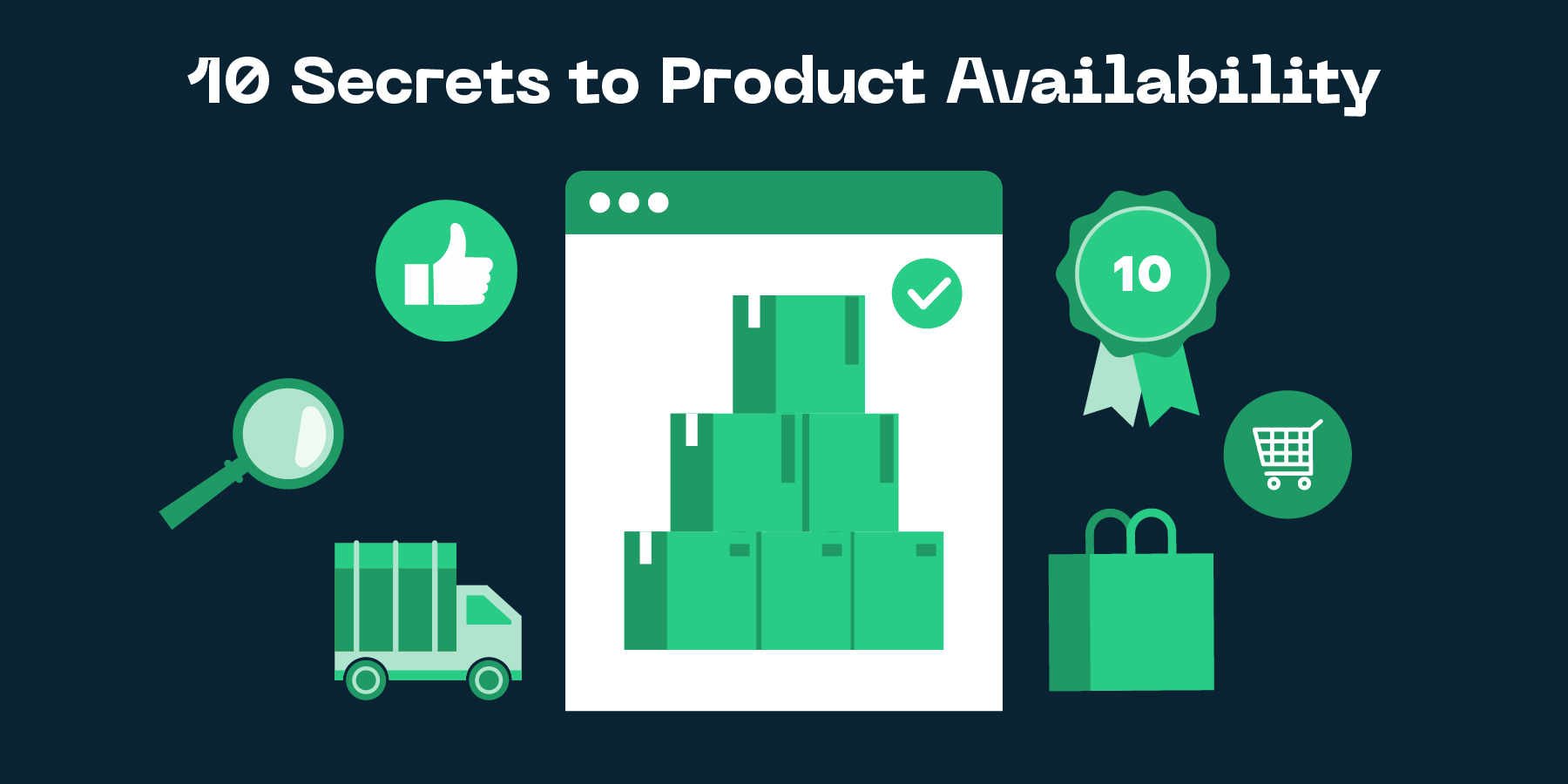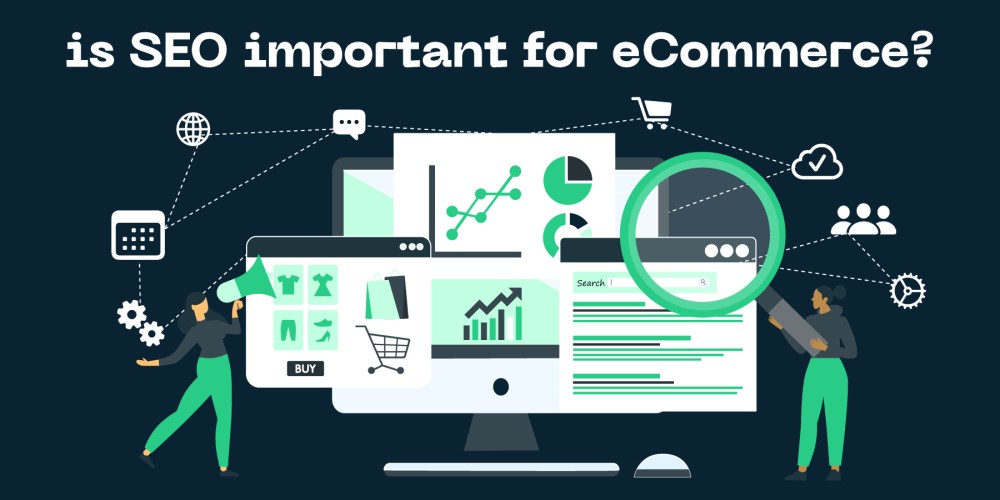Product Availability That Sells: 10 Strategies for Stores

Understanding the Importance of Product Availability
Defining Product Availability
Product availability is a key factor that plays a pivotal role in the success of any ecommerce store. It refers to the ability of a store to ensure that the products customers want to buy are always in stock and available for purchase. In the fast-paced ecommerce landscape, customers have come to expect immediate availability and swift delivery of products. Hence, ensuring continuous product availability can significantly enhance customer satisfaction and loyalty.
The importance of product availability cannot be overstated. A product that is not available is equivalent to a lost sales opportunity. When customers find that a product is out of stock, they are likely to switch to a competitor, leading to loss of revenue and market share. Moreover, repeated stock-outs can harm the brand image and lead to loss of customer trust in the long run.
Therefore, managing product availability effectively is critical to the success of an ecommerce store. It calls for efficient inventory management, accurate demand forecasting, and strong supplier relationships. By implementing these strategies and more, an ecommerce store owner or marketer can achieve sustainable product availability success, thereby boosting sales and enhancing customer loyalty.
Why Product Availability is Crucial for Success
In the competitive world of ecommerce, a key aspect that can make or break your business is product availability. It is not just about having a variety of products on your website, but ensuring that they are consistently available to your customers. The reality is, out-of-stock products can result in lost sales, damage your brand’s reputation, and most importantly, diminish customer trust in your ability to meet their needs.
The premise behind this is quite simple - if a customer cannot find the product they want on your website, they will likely turn to your competitors who can provide it. This is why product availability is directly linked to the success of your ecommerce business. It significantly impacts customer satisfaction, loyalty, and ultimately, your bottom line. Maintaining a healthy stock level is no longer an option, but a necessity to stay ahead in the ecommerce game.
Beyond the obvious factor of lost sales, lack of product availability can also have long-term effects on your SEO ranking. Out-of-stock products can result in lower click-through rates and high bounce rates, which search engines interpret as a negative user experience. Therefore, a strategy focused on sustainable product availability not only boosts your conversion rate but also enhances your online visibility and reputation.
Analyzing the Role of Data in Product Availability
The Power of Data Analysis
The power of data analysis cannot be underestimated in the ecommerce world, especially when it comes to product availability. As an ecommerce store owner or marketer, understanding the relationship between data and your product availability can be the key to increasing your conversion rate and ensuring sustainable success. By analyzing data, you can gain crucial insights into consumer behavior, demand trends, and inventory management, all of which play a vital role in product availability.
It’s vital to understand that data analysis is not just about collecting data, but more importantly, it’s about interpreting this data to make informed decisions. For example, through data analysis, you can identify which products are most popular among your consumers and ensure that these products are always available. This can significantly boost your conversion rate and customer satisfaction.
Furthermore, the power of data analysis extends beyond just ensuring product availability. By leveraging data, you can also predict future trends, plan your inventory more efficiently, and even discover new market opportunities. Therefore, data analysis should not be viewed as a mere tool, but rather as a strategic asset that can propel your ecommerce business to new heights.
How AI Can Enhance Product Availability
AI has emerged as a transformative tool in the ecommerce industry, offering significant advancements in product availability. Its innate ability to analyze vast amounts of data, predict trends, and automate tasks is revolutionizing the way ecommerce businesses operate. AI can greatly enhance product availability by accurately predicting demand, managing inventory, and preventing stockouts, consequently fostering a sustainable product availability success.
Analyzing the Role of Data in Product Availability
In today's data-driven world, data analytics plays a pivotal role in maximizing product availability. By leveraging AI, ecommerce businesses can process and analyze extensive sets of data to gain insights into customer behavior, seasonal trends, and market fluctuations. This allows them to forecast demand more accurately and make informed decisions around inventory management. Through predictive analytics, AI can identify patterns and predict future trends, ensuring the right products are available at the right time. This not only prevents stockouts and overstocking but also optimizes supply chain operations and enhances customer satisfaction.
Furthermore, AI can automate inventory management tasks such as reordering products, tracking deliveries, and scheduling shipments. This automation reduces manual errors and improves efficiency, ensuring a seamless supply of products. By integrating AI into their operations, ecommerce businesses can create a sustainable product availability strategy, leading to increased sales and improved customer retention. Embracing AI is more than just a smart move; it's essential for any ecommerce store owner or marketer aiming to stay competitive in today's fast-paced digital landscape.
Unlocking the Secrets to Sustainable Product Availability
Secret 1: Forecasting and Inventory Management
The first secret to ensuring sustainable product availability is effective forecasting and inventory management. Knowing how much stock to have on hand, when to reorder, and the most efficient way to store and move your inventory can make or break your ecommerce business. A well-managed inventory implies that you will always have sufficient stock to meet your customer's demands, which is crucial for maintaining customer satisfaction and loyalty.
Forecasting is the art and science of predicting future sales based on past trends and current market conditions. By accurately predicting demand, you can ensure that you have enough product on hand to meet customer needs without tying up too much capital in excess inventory. This requires both a deep understanding of your market and the use of sophisticated analytics tools.
Inventory management, on the other hand, involves efficiently storing and moving your products to minimize costs and maximize availability. This involves everything from warehouse layout and logistics to order tracking and restocking procedures. Effective inventory management ensures that you can quickly and efficiently fulfill orders, which is key to maintaining high conversion rates and customer satisfaction.
Secret 2: Supplier Relationship Management
The second key to ensuring sustainable product availability lies in effective Supplier Relationship Management (SRM). SRM is all about strategically planning and managing all interactions with suppliers that supply any goods and/or services to your business. The goal is to maximize the value of those interactions and establish long-term, mutually beneficial relationships. In the context of ecommerce, SRM becomes critical to ensure consistent supply of products, maintain quality standards, and mitigate any potential supply chain risks.
By meticulously managing your supplier relationships, you can significantly improve your product availability. For example, having a robust communication system with your suppliers can help you anticipate any supply issues in advance and take necessary actions. Regularly revisiting and renegotiating contracts can also ensure that you are getting the best deal, which can further contribute to the sustainability of your product availability. Additionally, a strong SRM program can also help identify and cultivate relationships with backup suppliers to maintain product availability even in the face of unexpected disruptions.
In conclusion, Supplier Relationship Management is not just about negotiating the lowest possible price. It's about building strong, collaborative relationships with suppliers, which in turn, ensures a sustainable supply of products for your ecommerce store. This not only increases your conversion rate but also enhances customer satisfaction, making it a win-win situation for all parties involved.
Continuing with More Secrets to Success
Secret 3: Effective Product Description
Under the umbrella of "Continuing with More Secrets to Success", let’s navigate through Secret 3: Effective Product Description. As an ecommerce store owner or marketer, you’re likely aware of the significance of a compelling product description. However, the extent of its influence on conversion rates can never be overstressed.
An effective product description is more than just a bland list of product features. It should be appealing and able to engage the customers’ senses. It needs to create a scenario in the customer’s mind, making them envision how it feels to own or use the product. More importantly, it must highlight the value and benefits the customer stands to gain from the purchase. It’s all about selling an experience, not just a product.
Moreover, an ideal product description addresses the customer’s potential objections and concerns, providing all the necessary information to make a purchase decision. It should also be SEO-friendly to ensure your product pages rank higher in search engine results, thereby driving more traffic to your store. By giving due attention to crafting compelling product descriptions, you can significantly boost your conversion rates and set the stage for sustained product availability success.
Secret 4: Using AI for Pricing Strategy
The fourth secret to unlocking sustainable product availability success is leveraging the power of Artificial Intelligence (AI) in your pricing strategy. For ecommerce store owners and marketers, AI can be an invaluable tool in dynamically setting and adjusting your product prices based on a number of factors. This not only eliminates the time-consuming task of manual pricing but also ensures that your pricing remains competitive and profitable.
How does AI aid in pricing strategy? AI systems can analyze a massive amount of data at an incredibly fast rate. They take into account variables such as competitor prices, demand fluctuations, seasonality, and even customer behavior to suggest the best pricing for your products. This level of data-driven pricing can significantly boost your conversion rates and enhance customer satisfaction.
Furthermore, AI can help in predicting future pricing trends, enabling you to stay ahead of your competitors. By understanding the market dynamics and making data-backed pricing decisions, you not only increase your sales but also ensure the sustainable availability of your products. Embrace AI to ensure your pricing strategy is not just reactive but also proactive, giving you the edge in today’s highly competitive ecommerce landscape.
Wrapping up with Last Secrets and Conclusion
Secret 5: Embracing Dynamic Pricing
One of the key secrets to ensuring a sustainable product availability success is Embracing Dynamic Pricing. It is a powerful strategy that ecommerce store owners need to understand and adopt. Dynamic pricing allows businesses to be flexible with their pricing strategy in real time, based on market demand and other factors. This strategy is crucial in maintaining a competitive edge while also maximizing profitability.
Often, ecommerce store owners aim to keep their product prices stable, fearing that fluctuations may discourage customers. However, the online marketplace is subject to quick and unpredictable changes. Hence, it is essential to be responsive to these changes to ensure product availability success. Adopting dynamic pricing allows you to adjust prices depending on factors like product demand, competitors’ prices and customer buying behaviour, thus helping you to achieve optimal inventory levels and increase conversion rates.
However, while implementing dynamic pricing, it is crucial to strike a balance. Extreme fluctuations could potentially alienate customers, leading to a decline in sales. It’s all about finding the perfect middle ground, where your pricing is competitive enough to attract customers, but also profitable enough to sustain your business. Keep in mind that it is not just about increasing prices during high demand, but also about decreasing them when demand is low to encourage sales. Therefore, embracing dynamic pricing is not just a secret, but a game-changer for ecommerce success.
Secret 6: Implementing Real-Time Stock Updates
The sixth secret to ensuring sustainable product availability success hinges on implementing real-time stock updates. For an ecommerce store owner or marketer, understanding and integrating this feature can be a game changer. The mechanism of real-time stock updates is a powerful tool for both increasing conversion rates and enhancing customer satisfaction. In an increasingly digital age where consumers crave speed and accuracy, having real-time stock updates can set your online store apart from the competition.
Why is it so essential? When customers have instant access to current stock data, it reduces the likelihood of disappointment caused by ordering an item that turns out to be out of stock. This not only facilitates a smoother shopping experience but also builds trust in your brand. It encourages repeat purchases and fosters customer loyalty. The implementation of real-time stock updates may require some technical expertise, but the payoff in terms of customer satisfaction and increased sales is well worth the effort.
Moreover, real-time stock updates assist in making informed decisions about when to restock and which items to prioritize, thus aiding in effective inventory management. This is an invaluable feature for ecommerce businesses where inventory management can sometimes be a daunting task. Remember, a successful ecommerce business doesn't just sell products; it promises availability and delivers on that promise. And real-time stock updates are a key player in fulfilling this promise.
The Ultimate Secret: Continuous Optimization for Sustainable Success
As we draw to a close on these essential secrets to achieving sustainable product availability success, let us focus on the ultimate secret - Continuous Optimization. Ecommerce success is not a one-time achievement, but a continuous process. Your operations and strategies should be flexible and adaptable to the ever-changing market dynamics and customer preferences. Thus, continuous optimization is at the crux of attaining and maintaining success in an ecommerce business.
Continuous Optimization is the process of constantly refining your strategies and operations based on market trends, customer feedback, and performance metrics. This involves regularly reviewing your stock levels, identifying slow-moving products, and adjusting your inventory accordingly. It also includes refining your marketing techniques, improving website performance, enhancing customer experience, and revising pricing strategies as and when necessary. It is a proactive approach towards ensuring that your ecommerce store is always aligned with the market trends and customer expectations, thereby paving the way for sustainable success.
In conclusion, sustainable product availability success is a blend of multiple factors – from having real-time inventory visibility to fostering strong supplier relationships. However, the ultimate secret is continuous optimization. It is the key to ensuring that your business stays relevant, competitive, and successful in the long run. Remember, sustainable success is not a destination, but a journey that requires constant efforts and optimization.



